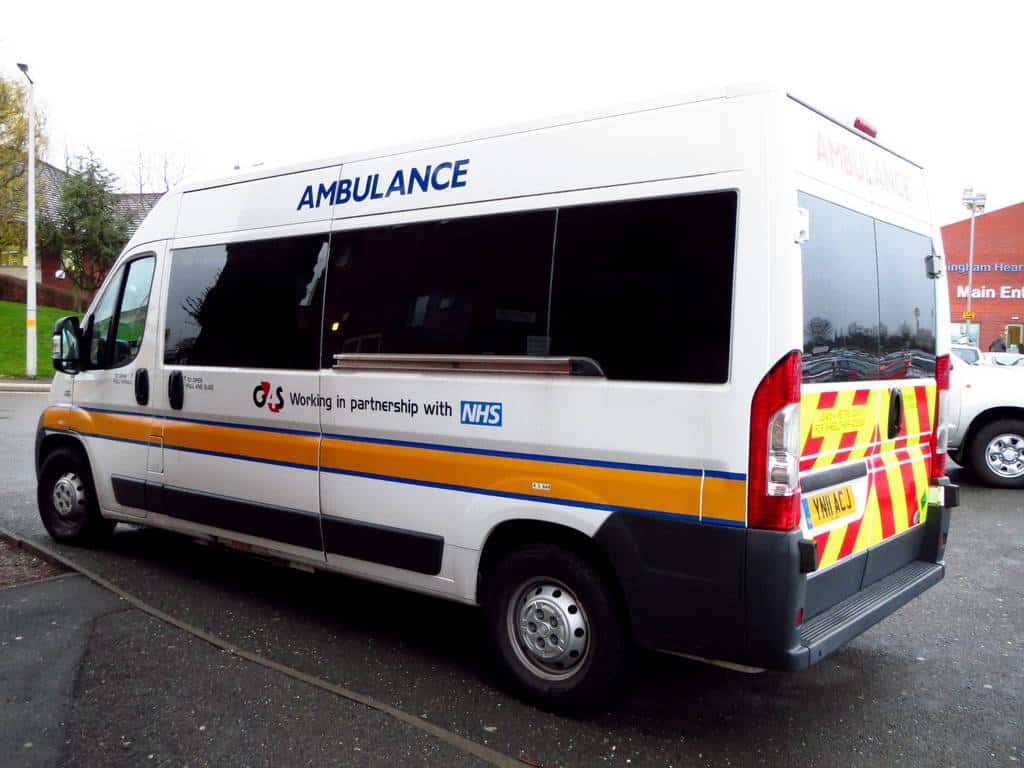PATIENT transport across West Kent will never improve unless a new company takes over the contract from G4S, one of its own drivers has said.
In a damning indictment of the contractor’s failings, Sean Woods said patients are ‘blatantly lied to’ by operators, who act like those using the service are parcels to be delivered, rather than people.
Mr Woods [not his real name] said he had chosen to talk to the Times following recent stories of patients being badly let down by the G4S transport service in Kent after being left waiting alone for hours to be picked up.
The Kent-based driver, whose credentials and identity have been confirmed by the Times, painted a picture of an overstretched organisation plagued by an indifferent management.
Reports in the Times of patients left stranded following their appointments came as ‘no surprise at all’ to Mr Woods who asked that his actual name not be used.
“The drivers are passionate about their job. But there are organisational problems with arranging the vehicles.
“For us a 45 minute wait is not good enough but generally there is a minimum of an hour.”
“Patients are blatantly lied to. Patients will ring up and be told that we are 20 minutes away but we are down in Ashford an hour away. And the office have trackers so they know we aren’t anywhere near.
“And that means patients think ‘oh, I won’t go for a tea or go to the toilet because they’ll be here soon’ and that is what annoys them the most. Nobody is straight with the patients.”
When asked why central control would mislead patients he replied: “It gets rid of people for 20 minutes and passes the problem on for someone else. People are not taking responsibility.”
The central control room is based in Chelmsford, alongside a smaller office in Maidstone, he explained.
“Management don’t have much care for patients”
Staff members, often those on the front line, who voice concerns are met with indifference by management.
“We get a shrug, people we speak to just pass it off,” Mr Woods said, adding: “To be honest, I and most people [who work there] don’t think it will improve without a different company running it.”
However, the picture is not completely bleak, as the vast majority of staff in patient facing roles are genuinely concerned for their wellbeing and go out of their way to treat them with respect.
“Management don’t have much care for patients. They want it to be like working for DHL [courier firm]. But for us that’s not the job. We’ll take Mrs Jones home, who’s been in hospital for three months, and we’ll find the heating and pop on the kettle.
“We treat each patient as if they were a member of our own family and have an affinity with lots of them.
“For example, we’re on a first name basis with people from the dialysis unit. They have regular pick-ups, the same times three days a week and the targets – drop off 15 minutes prior to appointment and pick up 15 minutes after – still gets missed.”
Mr Woods said his immediate superior is very supportive of taking a compassionate approach, but things break down higher up in the organisation, as the priority of senior management is hitting targets.
“They are just looking at Key Performance Indicators (KPI) – you have that much time for that many drop offs, but how long it takes completely varies.
“There is too much emphasis on quantity of service, rather than quality. They’d rather transport 100 people quickly than 20 while giving a good service. And I’m sure transporting 100 is a lot more financially beneficial to them.”
“The contract with G4S means end-of-life patients have no priority”
He confirmed no one had yet received any disciplinary action for spending too long with patients but if they got a low enough KPI score then they ‘would be spoken to’.
Mr Woods also indicated there had been a major argument between the drivers and management around patients heading to palliative care.
The company’s failings in this area have even drawn criticism from Tunbridge Wells MP Greg Clark, who accused the firm of a ‘lack of compassion’ and ‘bureaucratic pedantry’.
“The contract with G4S means end-of-life patients have no priority. They are just treated as any other. But the drivers refuse to do it. We are not taking a person for end of life care with other people in the vehicle.
“Partly there are concerns if something happens medically, but primarily it’s about dignity. It is their last ever drive outside, they shouldn’t have to take it with a bunch of strangers.
“We might take a longer route through the countryside, put on some music if they’re a fan. We want to make it as painless as possible for people. Yet that gets frowned upon by the powers that be.”
However the drivers have secured a significant victory in this area, as G4S has begrudgingly allowed them to treat those heading for palliative treatment with additional care and consideration.
“We made such a fuss that they’ve now accepted it,” Mr Woods said.
Â
Managing director for G4S transport services, Russell Hobbs, said:
“This is a complex service and we are currently transporting significantly more patients than anticipated. This inevitably causes pressures and while four out of every five patients arrive at their appointments within the target timeslot, compared with 68 per cent when we took over the contract, we recognise that there is more we need to do to improve the service. We are resolutely committed to patient care and delivering a good service to all those who use the service.
“We are working closely with NHS commissioners, our staff and patients to deal with the current issues, improve performance further and provide an efficient service with the care and compassion that everyone in our team can be proud of.








